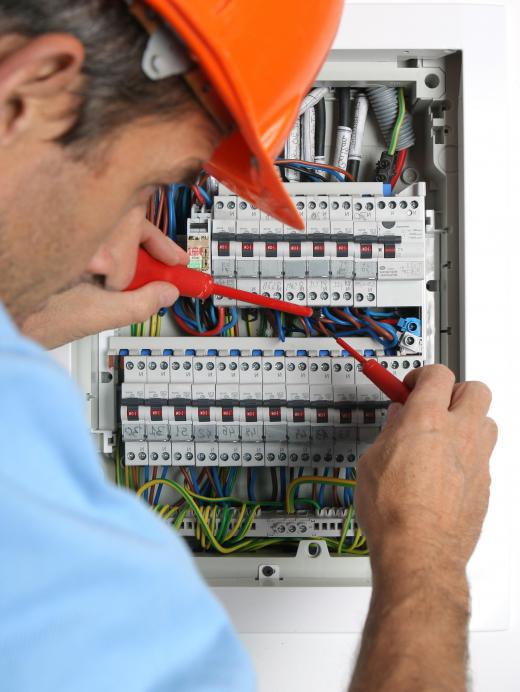A ground detector, also known as a ground indicator, is a device that indicates whether a ground is present in an electrical circuit. Such devices are used in a variety of settings, including safety equipment intended to identify problems with a circuit before it malfunctions, endangering people or equipment. They are available from electrical supply stores, and people can also make their own if they have experience with electrical circuits and associated devices.
In a system that is supposed to be ungrounded, the presence of a ground indicates a problem in the system. A ground detector can be used to check for errors and can also monitor a system continuously, triggering an alarm if a ground develops. The devices can also automatically de-energize a system until the problem has been addressed. This is similar to the ground fault interruption devices used for safety in environments like bathrooms and kitchens.

People can also use a ground detector to make sure a circuit is properly grounded. Some surge detectors come with a ground indicator light. If the system is grounded, it illuminates, assuring people that the circuit is grounded and safe to use. If it does not light up, or if a ground fault indicator illuminates, there is a problem with the circuit that needs to be addressed. The warranties on such devices often warn that if the warning lights showing an error with the circuit are illuminated when the device malfunctions, people will not be compensated for damages associated with the malfunction.

Portable ground detector devices are available for electricians and other professionals to use in the field. These devices can be used to test a circuit before use or if the electrician suspects there is an error in the circuit. The ground detector can provide useful diagnostic feedback, especially when combined with an examination of the circuit and checks with other devices. Electricians can also install a ground detector permanently in a circuit if there are special concerns about grounding and safety.

Working with electrical systems can be hazardous, especially if there is a problem. It is important to follow directions with equipment like a ground detector carefully, to make sure it is used appropriately. Special training may be required to work with some kinds of electrical systems and people should call an electrician if a monitoring device is returning an error they do not understand or if they are experiencing severe electrical problems.
Ever since she began contributing to the site several years ago, Mary has embraced the exciting challenge of being a About Mechanics researcher and writer. Mary has a liberal arts degree from Goddard College and spends her free time reading, cooking, and exploring the great outdoors.

